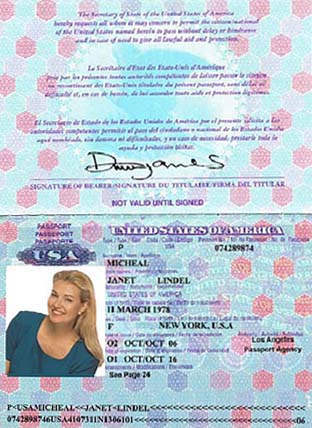Related Research Articles

An advance-fee scam is a form of fraud and is one of the most common types of confidence tricks. The scam typically involves promising the victim a significant share of a large sum of money, in return for a small up-front payment, which the fraudster claims will be used to obtain the large sum. If a victim makes the payment, the fraudster either invents a series of further fees for the victim to pay or simply disappears.

A pyramid scheme is a business model that recruits members via a promise of payments or services for enrolling others into the scheme, rather than supplying investments or sale of products. As recruiting multiplies, recruiting becomes quickly impossible, and most members are unable to profit; as such, pyramid schemes are unsustainable and often illegal.

A confidence trick is an attempt to defraud a person or group after first gaining their trust. Confidence tricks exploit victims using a combination of the victim's credulity, naïveté, compassion, vanity, confidence, irresponsibility, and greed. Researchers have defined confidence tricks as "a distinctive species of fraudulent conduct ... intending to further voluntary exchanges that are not mutually beneficial", as they "benefit con operators at the expense of their victims ".
Peter George Popoff is a German-born American televangelist, charlatan, debunked clairvoyant, and faith healer. He was exposed in 1986 by James Randi, for using a concealed earpiece to receive radio messages from his wife, who gave him the names, addresses, and ailments of audience members during Popoff-led religious services. Popoff falsely claimed God revealed this information to him so that Popoff could cure them through faith healing.

Black Friday is a colloquial term for the Friday after Thanksgiving in the United States. It traditionally marks the start of the Christmas shopping season in the United States. Many stores offer highly promoted sales at discounted prices and often open early, sometimes as early as midnight or even on Thanksgiving. Some stores' sales continue to Monday or for a week.

Phishing is a form of social engineering and scam where attackers deceive people into revealing sensitive information or installing malware such as ransomware. Phishing attacks have become increasingly sophisticated and often transparently mirror the site being targeted, allowing the attacker to observe everything while the victim is navigating the site, and transverse any additional security boundaries with the victim. As of 2020, it is the most common type of cybercrime, with the FBI's Internet Crime Complaint Center reporting more incidents of phishing than any other type of computer crime.
Domain name scams are types of Intellectual property scams or confidence scams in which unscrupulous domain name registrars attempt to generate revenue by tricking businesses into buying, selling, listing or converting a domain name. The Office of Fair Trading in the United Kingdom has outlined two types of domain name scams which are "Domain name registration scams" and "Domain name renewal scams".

Internet fraud is a type of cybercrime fraud or deception which makes use of the Internet and could involve hiding of information or providing incorrect information for the purpose of tricking victims out of money, property, and inheritance. Internet fraud is not considered a single, distinctive crime but covers a range of illegal and illicit actions that are committed in cyberspace. It is, however, differentiated from theft since, in this case, the victim voluntarily and knowingly provides the information, money or property to the perpetrator. It is also distinguished by the way it involves temporally and spatially separated offenders.

Sim Lim Square, commonly referred to as SLS, is a large retail complex in Singapore that offers a wide variety of electronic goods and services including cameras, phones, video cameras, and computer parts and servicing.

A romance scam is a confidence trick involving feigning romantic intentions towards a victim, gaining the victim's affection, and then using that goodwill to get the victim to send money to the scammer under false pretenses or to commit fraud against the victim. Fraudulent acts may involve access to the victim's money, bank accounts, credit cards, passports, e-mail accounts, or national identification numbers; or forcing the victims to commit financial fraud on their behalf.

In economics and finance, market manipulation is a type of market abuse where there is a deliberate attempt to interfere with the free and fair operation of the market; the most blatant of cases involve creating false or misleading appearances with respect to the price of, or market for, a product, security or commodity.
The Isles International University/Université (IIU), formerly known as Irish International University and European Business School, is an unaccredited university operating currently in Ireland.
The art student scam is a confidence trick in which cheap, mass-produced paintings or prints are misrepresented as original works of art, often by young people pretending to be art students trying to raise money for art supplies or tuition fees. The sellers mostly represented themselves as French art students, but the scam has recently been copied internationally, with instances of Chinese, Chilean, Nigerian and other nationalities posing as art students or dealers in Australia, Canada, China, Ireland, New Zealand and the United States since around 2000. The art is often sold in exhibition sites or art galleries. Many scammers operate alongside and at the long-run expense of genuine art students who show their yearly work in festivals during the summer vacation.
Electronic harassment, electromagnetic torture, or psychotronic torture is a conspiracy theory that malicious actors make use of electromagnetic radiation, radar, and surveillance techniques to transmit sounds and thoughts into people's heads, affect people's bodies, and harass people. Individuals who claim to experience this call themselves "targeted individuals" (TIs). Some claim they are victims of gang stalking and many have created or joined support and advocacy groups.
A bride scam is a form of romance scam - a confidence trick that aims to defraud potential grooms with the offer of a foreign bride. The basis of the confidence trick is to seek men from the western world who would like to marry a foreign woman and pretend to be willing to marry them. The woman (scammer) asks the man to send money, for example, for the purposes of purchasing an airline ticket or a visa they have no intention of buying. The relationship ends after requested money has been wired and received, sometimes after multiple transfers have been made.

Fortune telling fraud, also called the bujo or egg curse scam, is a type of confidence trick, based on a claim of secret or occult information. The basic feature of the scam involves diagnosing the victim with some sort of secret problem that only the grifter can detect or diagnose, and then charging the mark for ineffectual treatments. The archetypical grifter working the scam is a fortune teller who announces that the mark is suffering from a curse that their magic can relieve, while threatening dire consequences if the curse is not lifted.
The Abolish the Welsh Assembly Party, or in Wales, simply Abolish, is a registered single issue political party in Wales. It campaigns for the abolition of the Senedd, formerly known as the "National Assembly for Wales", the devolved legislature of Wales. Abolish advocates that devolved powers be returned to the Secretary of State for Wales within the UK Central Government and the Parliament of the United Kingdom at Westminster.
The locksmith scam is a scam involving fake business listings for cheap locksmith services that, once called out, overcharge the customer. The scam targets people who call a locksmith out of desperation, usually because of being locked out of their car or premises. Locksmith scams have been reported in the U.S., the U.K., and New Zealand.

On July 15, 2020, between 20:00 and 22:00 UTC, 130 high-profile Twitter accounts were reportedly compromised by outside parties to promote a bitcoin scam. Twitter and other media sources confirmed that the perpetrators had gained access to Twitter's administrative tools so that they could alter the accounts themselves and post the tweets directly. They appeared to have used social engineering to gain access to the tools via Twitter employees. Three individuals were arrested by authorities on July 31, 2020, and charged with wire fraud, money laundering, identity theft, and unauthorized computer access related to the scam.
References
- ↑ Oliver, Mark (August 24, 2004). "Fraud victims await answer to prayers". The Guardian. Retrieved 2008-10-23.
- 1 2 Tendler, Stewart (November 30, 2004). "Yard hold couple over 'scam' made in heaven - Times Online". London: Times Online. Retrieved 2008-10-23.
- ↑ US Department of Justice Press Release